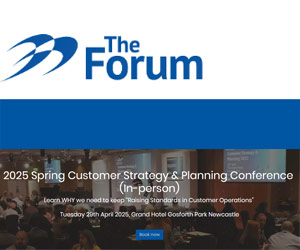RingCentral has shared research exposing the current views of UK workers when it comes to ways of working.
Key highlights include:
- Two-thirds (66%) would rather continue working from home than return to the office full-time
- 65% of Brits would choose to perform undesirable tasks over commuting. More than one in three (37%) would prefer to clean the toilet, and a quarter (25%) would rather have their in-laws stay for the weekend
- As some organizations want their employees back in the office, RingCentral survey finds that a quarter (25%) will look for a new job if forced back, highlighting negative sentiment as threat of ‘great resignation’ looms overhead
- More than half (52%) have colleagues they’ve never met, with 47% expressing anxiety about meeting them face-to-face
Hybrid Remains the Preference for Most
Two-thirds (66%) of those who currently work at home say they prefer this to a full-time in-person office work model, and a quarter (25%) will look for a new job if forced back into the office.
As businesses suffer the consequences of the Great Resignation, RingCentral urges leaders to heed these findings and ensure their teams have the tools and resources they need to maintain a flexible, hybrid approach to work.
Younger People Are Driving the Great Resignation
According to the Office for National Statistics (ONS) 791,000 Brits in the UK moved jobs from April to June 2021. This equates to 2.6% of the UK’s workforce – the highest total since March 2019, and before that, the highest in a decade.
RingCentral’s data suggests that younger people may in fact be leading the recent wave of resignations. Almost a third (32%) of those aged 21–24 plan to leave their place of employment, with a further 27% planning to leave in the next six months.
Further, a third (33%) of millennials (25–34) will look for a new job if their employer changes their work model to a more in-person approach. Those aged 25–34 were also 1.5x more likely than those in the 45–54 age group to claim that their career aspirations have changed during the pandemic.
The younger workforce is nearly three times (2.8x) more likely than the older segments to suggest that they are now more career focused.
Back-to-Work Anxiety Remains
Alongside the convenience and flexibility of working from home, social anxiety is driving reluctance to return to in-person working models. Half (52%) of Brits claim that there are now colleagues in their workplace that they haven’t met in person.
Among this group, 47% say that they feel anxiety about meeting these new colleagues face-to-face. 75% of the workforce believes that those who return to in-person workplace models should be vaccinated.
Steve Rafferty, Country Manager, UK and Ireland, RingCentral, comments: “More often than not, the workforce is a company’s most valuable asset and this is why the Great Resignation has been such a concern.
“It’s all very well to flippantly say that workers should ‘get off their Pelotons’ and return to the office, but for many individuals, the introduction of a hybrid working model has been a lifeline. Giving people flexibility to manage work around other commitments helps to boost work/life balance, and supports those who may have challenges such as mental health concerns.
“What’s more, the last 18 months have proven that with the right collaboration tools, it is possible not only to build highly productive teams, but also meaningful human connections with colleagues to generate positive working relationships. One way or another, the data is clear: if businesses want to retain their staff they need to offer an environment that caters to modern needs.”
To view the report findings, click here.
Author: Guest Author
Published On: 1st Dec 2021 - Last modified: 7th Dec 2021
Read more about - Industry News, RingCentral



































